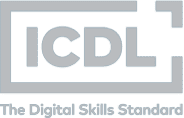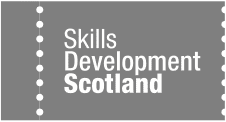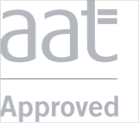Are you considering a career in project management? There are many opportunities for individuals with project management qualifications. With these important skills, you can build a rewarding career. Given this news, it’s no surprise that interest in project management is currently at an all-time high.
So you’re considering starting or building your career as a project manager. You may be wondering how beneficial Project Management Courses could be for you. A qualification or diploma in project management provides many benefits. It gives job seekers and career changers many personal and professional advantages.
In this article, we’re going to:
- Dive a little deeper into the project manager role
- Run through the employment prospects for project managers in the UK
- Outline different types of project management accreditation
- Show you how a diploma in project management could help you and your career!
Are you ready? Then let’s go!

What does a project manager do?
The project manager oversees a project or projects for a company or individual. They must also take into account risk, resources, timing, budget, and scope. While the role varies between firms and teams, there are certain necessary qualities. A project manager needs to have great communication, organisation and planning capabilities. In addition, they must understand the software and tools used in project management. These tools ensure a smooth process and help to complete project goals.
Project manager prospects
In the UK, the demand for project managers is high. This matches a worldwide trend of increased demand for this skill set. In the UK more than 168,196 project manager roles will become available in the ten years between 2017 and 2027. Worldwide, project manager role openings will also rise.
There are job openings for project managers in many industries. This includes construction, finance, healthcare, and education, among many others. With the right qualifications and experience, project manager prospects are excellent. These individuals can find a large range of roles. The average project manager salary in the UK hovers around £55,000. It can even reach £80,000 for those with significant experience and seniority. You can expect significant compensation in the role, too.

Project manager accreditation
You could launch a career without any formal project manager accreditation or qualifications. But, formal project management qualifications bring about many important personal and professional advantages. You can study for a project management certification or diploma at a reputable training centre, such as Pitman Training. Some of the most popular formal project management qualifications for students are:
1.) PRINCE2 Qualifications
PRINCE2 is an important project management software. It assists users with project delivery, budgeting, risk management and problem mitigation.
2.) CompTIA Project+ Qualification
Students will learn how to manage the project life cycle and project documentation. In addition, they learn how to manage the coordination of a team and the project stakeholders. Finally, they learn how to use the best communication practices.

Benefits of a diploma in project management
Project management certification can bring many professional benefits. This is true regardless of the industry you wish to work in. Let’s take a detailed look at what you can expect to gain from a diploma in this field.
Job interview advantages
1. Show your commitment
Certification is a great way to make a good impression during your first interviews in the field. With it, you’re demonstrating your passion for project management. Also, you are showing your commitment to your new career choice.
2. Gain an edge over the competition
Those with project management qualifications have an advantage over those who don’t. A certificate shows that you already have many of the skills required to excel in the position. For an employer, this means they need to spend less time training you themselves.
3. Show your experience
Many diploma courses help you create a portfolio of completed course projects. In a job interview context, this portfolio will make for a great talking point. You’ll be able to discuss what you learned, as well as the tools, software, or processes you can work with. A portfolio shows you have experience and could get you the job.

Industry advantages
1. Stay up to date
on industry changes
In your studies, you will learn the most recent procedures in the project management field. You will receive an education in the very latest developments, technology, and insights. Learning about the latest industry information prepares students for the job. This is a huge advantage of a diploma in project management.
2. Meet like-minded students and professionals
Courses help you connect with students who have similar professional goals as you. It also gives you a chance to network with industry peers. Programs allow you to build a support group and learn from the experiences of others. Also, you can connect with both students and teachers in your course. This makes it more likely you will hear about job openings in your field.
3. Learn the hard and soft skills of project management
A key advantage of taking a diploma in project management is the hard and soft skills you will learn. Industry professionals will teach you technical skills such as Excel and Outlook. These hard skills let potential employers know that you can get work done right away. Meanwhile, soft skills, such as leadership and risk management, allow you to work well within a team. You will provide significant value to the company immediately. In addition to project management, you can also study Business Management Courses to gain even more of a competitive edge.

Course advantages
1. Ask questions
Unlike self-study, a program gives students the chance to ask the teacher questions. Throughout your studies, you may need guidance. Teachers can help with a simple clarification or a thorough explanation of a difficult concept. Further, a teacher provides students with ongoing and immediate support throughout the course.
2. Get direct feedback
During a diploma course, students benefit from hearing the teacher’s professional opinions. Also, teachers provide their students with direct feedback on their projects. They tell them what’s going well and where they might improve. A teacher prioritises advising their students. This ensures that they continue to improve.
3. Stay motivated
Students in a course are more likely to stay motivated than those who choose self-study. This is thanks to the support of other students and the guidance of the teacher. Also, the real results they witness in their own professional development are great motivation.

Personal advantages
1. Reach your goals faster
Knowing how to plan, manage budgets, and prioritise tasks. These are all skills that you can use to further your career and reach your professional goals. Also important are aligning goals, streamlining processes, delegating work, and executing tasks. These skills allow you to achieve goals faster. You will learn to handle your goals the way a project manager would. Once you approach your goals this way, you’ll hit project career targets much sooner.
2. Gain confidence in your abilities
In courses, you gain regular feedback from your instructor. Hands-on projects allow you to solidify your skills. You also receive training in the latest project management technology. Thus, a diploma course provides a boost to your confidence in your abilities. You’ll also have a much clearer idea of what the day-to-day tasks of a project manager consist of. This will enable you to prepare for your new career.

What skills will you learn during a project management diploma?
A project management diploma benefits your career, confidence, personal development, and network. You will also gain many soft and hard skills essential to the role. Let’s take a look at some of the skills you’re likely to learn when studying for a project management diploma.
Soft skills
Soft skills are interpersonal talents and attributes that can apply to all professions. This includes project management careers. During your course, you’ll learn the tools and techniques that enable you to develop these skills. Additionally, you will learn how to apply them in a real-world setting.
- Time management
- Organisation
- Communication
- Negotiation
- Risk management
- Leadership
- Decision-making
Hard skills
Hard skills are more specific than soft skills and tend to be job-specific. During your diploma, you’ll learn and develop the hard skills for project management. You will use these to complete the duties and responsibilities of project managers.
The skills you will learn depend on the specific diploma you opt for. Some of the project management-specific hard skills you’ll learn might include:
- Prince2 Foundation
- CompTIA Project+
- Word
- Excel
- Outlook
- Costing and pricing
We hope you’ve enjoyed our short guide to project management accreditation. You should now be more familiar with the personal and professional benefits of a project management program. Choosing a formal education route can lead to many project manager prospects. For more information on project and business management, contact us today.


















